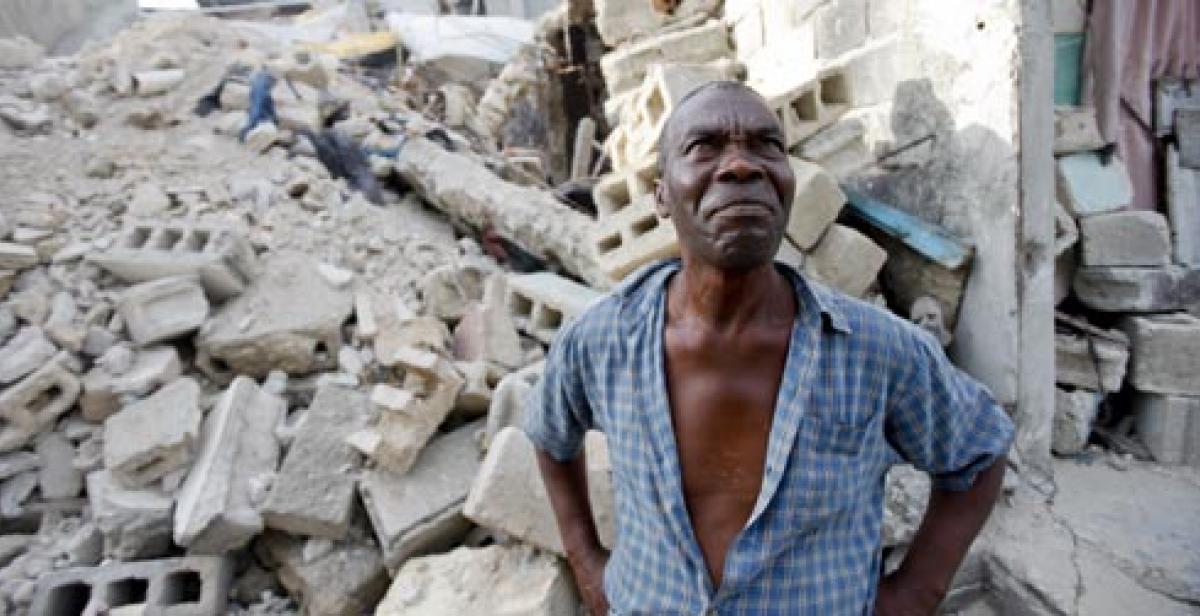Haitian communities have rarely been consulted in the international search for solutions to the country's ongoing social, economic and political problems following the devastating 12 January earthquake, Haitian and Dominican civil society and faith leaders have said.
Speaking at a meeting in the Dominican capital, Santo Domingo, the directors of a number of Progressio partner organisations based in the Dominican Republic and Haiti, including Progressio’s Country Representative for Hispaniola, Sonia Vasquez, said that although major efforts had been made to help resolve the crisis in Haiti following the quake, there was still a great deal of pessisism about the situation in the disaster-stricken nation.
Unprecedented levels of solidarity shown towards Haiti following the events of January 12 created expectations which have still not been met, they added.
Colette Lespinasse, Director of Progressio partner organisation the Haitian Support Group for Refugees and Migrants (GARR), said that the promises made by world leaders at the New York summit in March and at the Punta Cana summit in the Dominican Republic, had still not been acted upon.
Ms Lespinasse said donor countries needed to reach urgent consensus on how to proceed so that positive steps can be taken to improve the situation for the people of Haiti. Companies had lost the capital they need to operate, and people are still living in tents or under canvas - and are increasingly worried about the hurricane season, she said.
“We have seen no improvement whatsoever”, said Ms Lespinasse. “Yes, aid arrived in Haiti during the first three months following the quake, but in terms of reconstruction, nothing has happened at all.”
“People should help themselves and not rely on empty promises”, she added, stressing that “there are no jobs to enable people to generate new sources of income.”
The civil society and faith leaders, including Fr Lazard Wismith of Progressio partner the Jesuit Refugee and Migrant Service and Mario Serrano of Progressio partner Centro Bonó, also said they deplored the lack of leadership in the coordination of aid, the delivery of which is still being hampered by mountains of paperwork before supplies are allowed to cross the Dominican-Haitian border.
The leaders also noted major concerns with regards to the availability of food and general organization of the post emergency situation in Haiti - including lack of water, sanitation and fuel in camps - but said that the security situation was not an issue of current concern.
Other issues raised include:
- The positive levels of solidarity shown towards Haiti by the Dominican Republic after the earthquake;
- The need to reactivate the ‘Joint Bilateral Commission’ between the the Dominican Republic and Haiti, and a “lack of political will from the leaders of the two countries to do this”;
- The need for urgent delivery of international aid pledges;
- The need for greater enforcement of the Dominican Republic’s Migration Act.
Progressio has been working alongside Dominican and Haitian NGOs as part of the Ayuda a Haiti (Help Haiti) platform to ensure the voices and concerns of Haitian communities are heard in the recovery and long-term reconstruction process.
The platform was mobilised in the immediate aftermath of the 12 January quake, the worst tremor to hit Haiti in more than 200 years.
Read the original article (in Spanish)
Photo: Wilbert Joseph's house was completely destroyed during Haiti's earthquake. He continues to remove rubble with a shovel and a wheelbarrow (© Natasha Fillion/Progressio).



